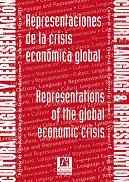Feminist Finance: Recessionistas, Debt and the Credit Crunch
Contenido principal del artículo
Resumen
This article offers an opposing argument to the «man-cession» narrative that has dominated the press in recent years and explores what makes this particular economic context crucial for contemporary women’s fiction, offering a view into the recession’s impact on women’s lives, reading, consumption patterns, and self-identity in today’s post-credit-crunch world. The credit crunch has reignited debates about gender and the workplace in twenty-first century society. This article proposes that tensions between gender and debt have been played out in popular culture post-2007, most notably in publishing, through the emergence of a new genre of literature – Recessionista fiction. In Recessionista fictions, cocktails and heels are eschewed in favour of financial practicality, as shopaholic heroines confront a harsh new reality, forced into a position where they must take stock of their lives and start again from the midst of financial ruin, divorce or a major career change. As part of this process, Recessionista fiction foregrounds the impact of the credit crunch on female identity. This article examines a range of Recessionista fictions to explore how, why and with what effects the heroines of these novels intern and reify the attitudes of society during and after the global credit crunch. Examining an evolution in contemporary fiction that brought a taste of reality to an outdated chick lit genre in danger of extinction, the article analyses representations of gender and debt and the possibilities for personal transformation brought about by the global economic downturn.
Descargas
Detalles del artículo
Se utiliza una licencia de derechos de autor CREATIVE COMMONS de acceso abierto.
Aquellos autores/as cuyos trabajos sean publicados por esta revista esta revista, aceptan los términos siguientes:
Concretamente mediante las siguientes acciones:
- - Los autores/as conservarán sus derechos de autor y garantizarán a la revista el derecho de primera publicación de su obra, el cuál estará simultáneamente sujeto a la Licencia de reconocimiento de Creative Commons CC BY SA que permite a terceros compartir la obra siempre que se indique su autor y su primera publicación esta revista.
- - Cumplimiento de un porcentaje mínimo del 40% de mujeres como revisoras de los trabajos enviados a la revista.
- - Los autores/as conservarán sus derechos de autor y garantizarán a la revista el derecho de primera publicación de su obra, el cuál estará simultáneamente sujeto a la Licencia de reconocimiento de Creative Commons CC BY SA que permite a terceros compartir la obra siempre que se indique su autor y su primera publicación esta revista.
- - Los autores/as podrán adoptar otros acuerdos de licencia no exclusiva de distribución de la versión de la obra publicada (p. ej.: depositarla en un archivo telemático institucional o publicarla en un volumen monográfico) siempre que se indique la publicación inicial en esta revista.
- - Se permite y recomienda a los autores/as difundir su obra a través de Internet (p. ej.: en archivos telemáticos institucionales o en su página web) antes y durante el proceso de envío, lo cual puede producir intercambios interesantes y aumentar las citas de la obra publicada.


